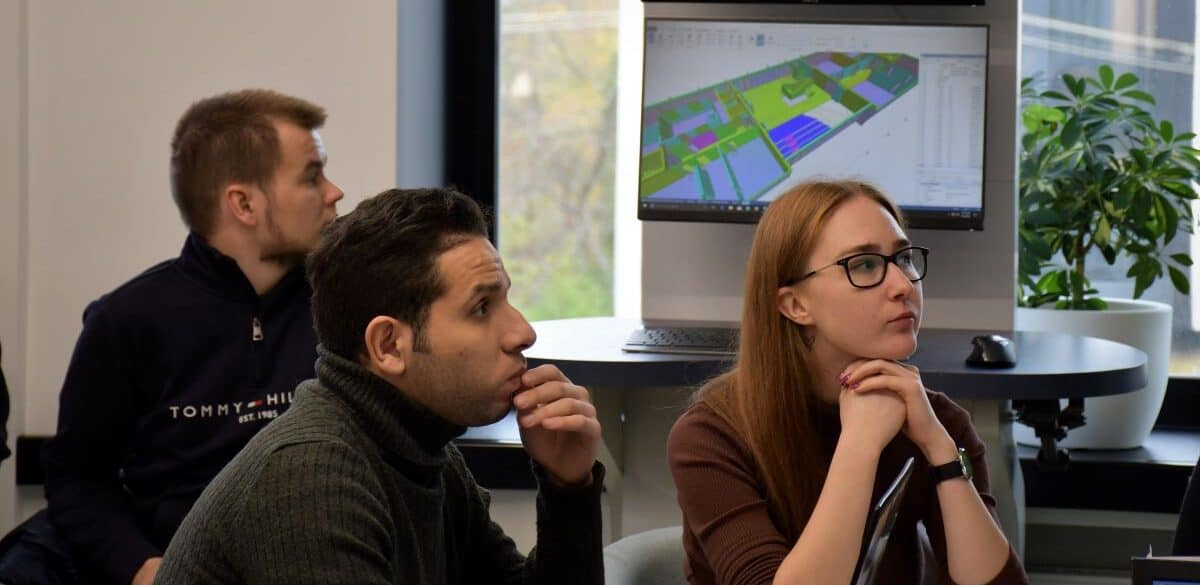Sweco Nederland B.V. / Oosterweel Connection Antwerp
Antwerp, belgium

Project
Part of Antwerp’s Great Connection strategy to prepare the city for sustainable mobility, the Oosterweel Connection will relieve traffic congestion, while reducing noise pollution and improving air quality in the surrounding neighborhoods. Sweco Nederland was contracted to construct a 5.5-kilometer highway to close the ring road around Antwerp. The highway will run through a 2.5-kilometer-long stacked tunnel underneath the Albert Channel. Sweco also had to include two upper tunnels that run from the south and two that run from the north. Both tunnels will diverge and merge at a sunken intersection that connects the highway with the city and the Port of Antwerp, with an additional tunnel constructed underneath the River Scheldt to complete the ring road. Concurrently, Sweco has to replace a nearly 5-kilometer-long covered section with a sunken highway, where large parks will be built on top to reduce air and noise pollution. The team also faced a vast amount of data to manage. Road models consisted of 30 different alignment files, containing 75 alignments with a total length of 68 kilometers. There were also 30 corridor files containing over 250 corridors and 400 template drops, and 25 edit and superelevation models to store the construction lines.
Facts
- Sweco is one of the first users of OpenRoads Designer in the Netherlands.
- Using OpenRoads, Sweco developed its own workspace and applied it to one of the largest and most complex projects in Europe.
- Over two years, Sweco learned the capabilities of OpenRoads Designer and applied them in a dynamic design process.
- OpenRoads models helped communicate the design to all stakeholders, showing the impact of design choices to both technical and nontechnical stakeholders early in the design process.
“OpenRoads Designer enabled us to study and implement design changes fast within a very complex project, with swift impact analysis for all stakeholders. In this dynamic process, we created a common validated design, which strengthens the positive impact of the project on Antwerp and Flanders.”
– Joris Detrie, Team Manager, Integral Infrastructure Design, Sweco Nederland BV
Solution
To successfully complete the project, Sweco needed to maintain consistency across the project, which includes many stakeholders and parallel processes that resulted in a constant stream of small and large design changes. These changes needed to be communicated to other design teams quickly and clearly. Therefore, Sweco sought to model the project’s complicated road section design in 3D and use a robust project collaboration system to align the multidiscipline team’s data. However, not all team members could receive or deliver 3D information. Consequently, Sweco needed a design application that could accurately model the project in 3D to help other team members visualize their data. Additionally, previous stages of the project were completed in another application, so Sweco had to take the alignments made in that software and continue them in the new solution, which created a new challenge of developing an optimal workflow with the software.
Outcome
Already familiar with Bentley applications, Sweco knew that OpenRoads Designer could help them with this intricate and complex project. The software enabled a team of three road designers to simultaneously work on the design while sharing each other’s designs as input. They decided to use separate models for each alignment and deploy ProjectWise to manage them so that they could work with multiple designers on the same sections. However, Sweco struggled to export the files to other formats, as not all disciplines were using Bentley software. As a result, they needed to export the road models to different formats and export the full model to an iModel while using Safe Software’s feature manipulation engine to transform the models to DWG format. All the models of the multidiscipline team were then collected and exported into LumenRT to facilitate walkthroughs.
Software
OpenRoads Designer
With OpenRoads Designer, Sweco designed, verified, and implemented changes in a shorter amount of time. For example, one design change took three designers only four weeks to reach a solution, leading to a three-month savings in resource hours when compared to using other software. Moreover, Sweco saved four months using OpenRoads Designer to modify changes to the sunken, partially canopied interchange between the tunnels underneath the Albert Channel and the River Scheldt. Had they used other software, these changes might not have been investigated at all due to time constraints. OpenRoads Designer also helped Sweco achieve an estimated savings of seven months compared to previous workflows, translating to a cost reduction of EUR 400,000 for the road design. Using item types in OpenRoads Designer enabled the team to provide stakeholders with quick insights into the project as a whole as well as separate project components. Item types were also used to automate the model export workflow, saving an additional EUR 75,000. Lastly, the project will improve quality of life in the surrounding neighborhoods and make the city climate change resilient.



